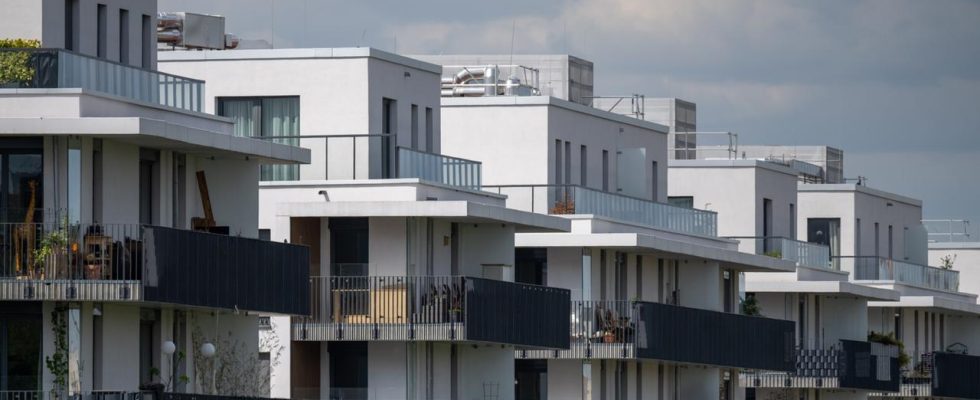Although rents are rising and purchase prices for real estate are falling, buying is currently not worth it for many Germans. And building is currently too expensive for many private individuals in this country.
Despite falling purchase prices and rising rents, purchasing property is currently not worthwhile for the average household. This remains “significantly more expensive than renting in Germany,” according to the study by the credit insurer Allianz Trade, which is available to the Reuters news agency.
This applies even if rents are increased by the legal maximum of 20 percent based on the 2023 level. Then the difference between an average monthly loan burden and a monthly rent would still be 381 euros. “The fact is: despite falling prices, many people cannot afford to buy a house,” said Jasmin Gröschl, senior economist at Allianz Trade.
Purchase prices must fall significantly
“The private house builders will not pull the construction industry out of the low demand in the current situation,” said Gröschl. The purchase does not seem to be a realistic alternative due to the high loan interest rates. Normalization is hardly foreseeable, “not even through simplified building permits”.
Only if, in addition to the rent increases, real estate prices fell by 20 percent compared to 2022 – and thus by a further ten percent compared to the current level – would buying a house be worth it compared to the return. Alternatively, the mortgage interest rates could also fall to 1.78 percent in addition to the rent increase to make a purchase profitable. However, building interest rates are currently around four percent.
700,000 apartments are missing
The experts do not expect a quick end to the construction crisis. “Many construction projects are on hold due to higher interest rates and material costs – with visible consequences for project developers, construction companies and, above all, the housing market,” said the CEO of Allianz Trade in Germany, Austria and Switzerland, Milo Bogaerts.
By 2023 there will be an estimated shortage of 700,000 apartments. “Affordable housing has been in short supply for years, and the current situation is likely to make this even worse.” Inflation in particular has increased the pressure on the housing stock. Rents have risen to record levels across Germany this year, with real wage losses occurring at the same time. At the same time, inflation and rising interest rates suddenly slowed down new construction projects because they made housing even more expensive.
The result: In August there were almost a third fewer building permits for apartments than a year before. This is putting more and more companies in the construction and real estate industries in trouble. Both sectors accounted for around a fifth of the bankruptcies in Germany from January to August. “The order situation is hitting many project developers and building contractors hard, as they have had virtually no new orders for months,” said Bogaerts.

